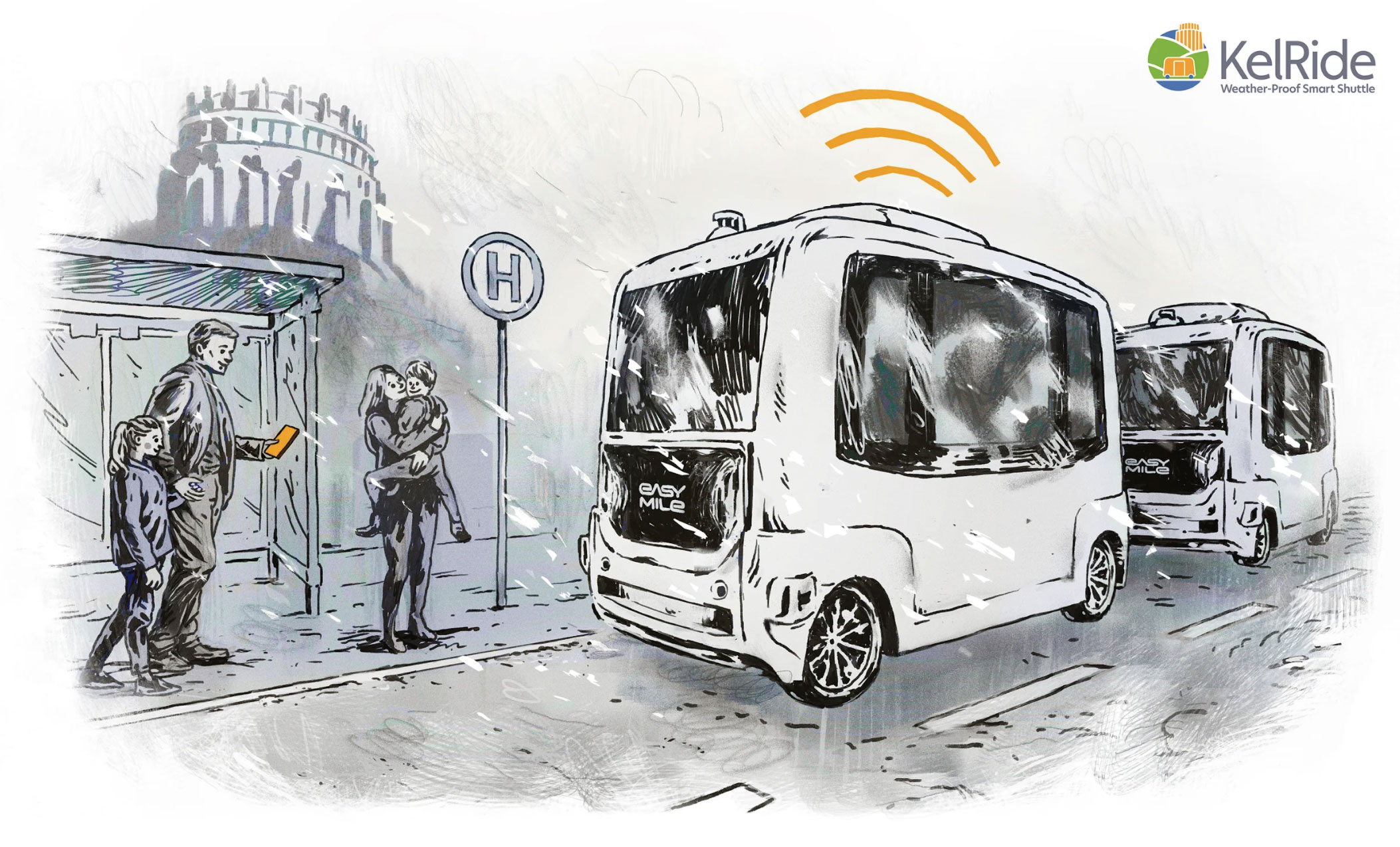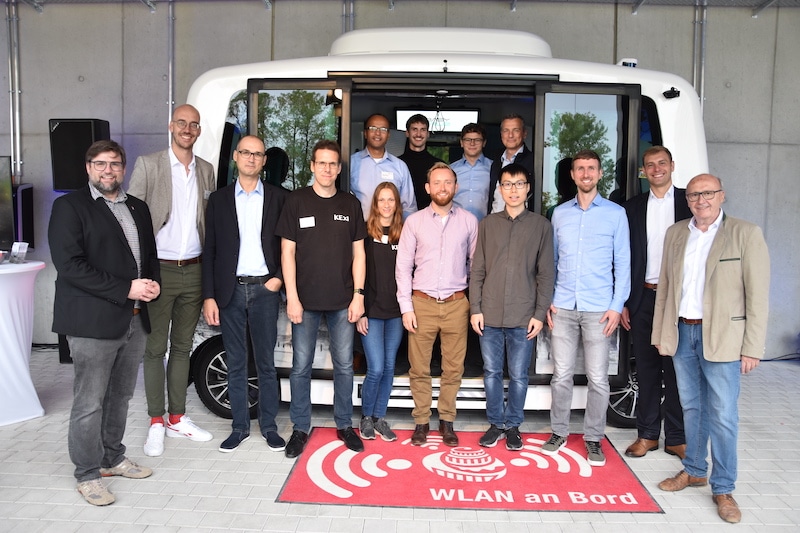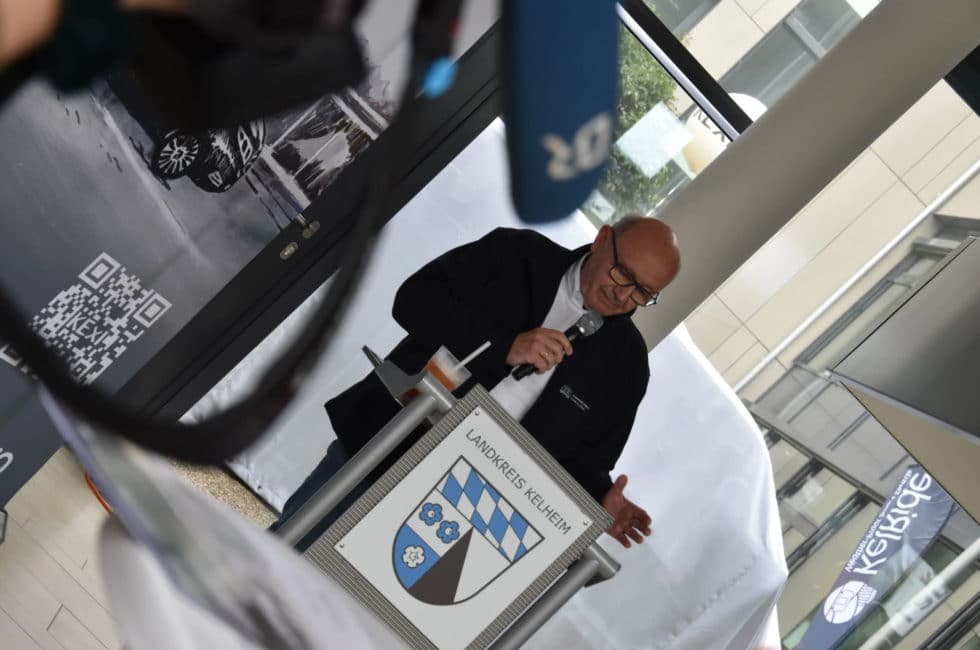- BMVI grants funding: In the KelRide project, 6 partners from industry, the public sector and science will launch an autonomous, weatherproof ridepooling solution integrated into public transport for the first time in Germany by 2023.
- The project consortium is working on further developing the weather resistance of autonomous vehicles and deep integration into public transport to improve efficiency and customer experience with highly automated vehicles. The region is becoming a model for the future for other cities and municipalities.
Berlin/Kelheim, 23 March 2021
The KelRide research and development project is now officially launched with the handover of the grant statement on 22 March 2021. The new KelRide project will further develop autonomous driving in the district of Kelheim. The aim of the project is to introduce an autonomous on-demand ridepooling service that will be directly integrated into the public transport network and can operate in all weather conditions.
For this purpose, an on-demand ridepooling service will be established for the district, using electric and highly automated shuttles. The service will be part of the public transport system in the district of Kelheim and will be operated on a platform that integrates the consortium partners’ industry-leading technologies and experience in autonomous vehicles, fleet management and on-demand mobility into a modern mobility solution.
In addition, the project will develop the planning and testing processes for the future assessment of new types of highly automated vehicles for use in real-world operations from 2023.
Status quo of autonomous driving
The KelRide project addresses two of the biggest challenges of autonomous driving: the ability of highly automated vehicles to operate safely in all weather conditions and the efficient integration of automated mobility into the public transport network.
Currently, adverse weather conditions, such as heavy snowfall, rain or fog, still severely limit highly automated mobility offerings. The resulting restriction in the availability of mobility services is considered one of the last remaining challenges. The KelRide project will be the first to answer the question of the extent to which all-weather capability can be achieved in typical Central European weather conditions through the use of sensor technologies already available today and software solutions for vehicle control and intelligent fleet management that still have to be adapted to this, and will put this consistent system architecture to use in Kelheim. In addition, the KelRide project will make it possible for the first time in Germany to book highly automated vehicles on-demand as a modern form of intermodal public transport. Up to now, this type of vehicle has usually been operated in a scheduled service on a fixed route, whereas here an area-wide service with dynamically optimized routing is being implemented that can cover a wide variety of travel purposes.
About the KelRide project
The KelRide project will run until the end of 2023 and is being funded by the German Federal Ministry of Transport and Digital Infrastructure (BMVI) as part of the “Digitalization and Artificial Intelligence in Mobility” action plan with a total of around 10.9 million euros. The project is being managed by the Federal Office for Administrative Tasks (BAV).
Strong partners from industry, district and research
“Together with strong partners, we will promote the development of a state-of-the-art technology for a future-oriented form of public transportation in the Kelheim district. The knowledge we gain from “KelRide” will serve as a possible solution approach for comparable mobility systems in other areas to sustainably secure regional accessibility for the population.” District Administrator Martin Neumeyer remarks. The district of Kelheim supports the development of the use case definition and accompanies the setup as well as the implementation of the trial operation. The needs in the district of Kelheim lie on the one hand in the optimization of public transport and in the creation of additional, target group-specific offers and on the other hand in a reduction of conventional motorized individual transport.
The management consultancy P3 Group supports the project by ensuring the punctual execution and sustainable project success based on its project management competence and holistic organization. In addition, the expertise of the consultants flows into the calculation of the business case as well as into the elaboration of the utilization concept as scaling to further municipalities. “For the P3 group as a management consultancy specialized in mobility of the future and its technology, “KelRide” represents a highly exciting project. We believe that the very well thought-out basic principle of “KelRide” can serve as a scalable blueprint for a large number of cities and districts across Germany,” says Marco Dargel, Partner Autonomous Driving.
The Department of Transportation System Planning and Traffic Telematics at the Technical University of Berlin simulates mobility behavior in the Kelheim district and investigates the effects of different shuttle concepts using the agent-based traffic simulation MATSim (Multi-Agent Transport Simulation).
Via, the leading provider of on-demand public transport solutions, will optimize booking, routing, passenger and vehicle assignment, customer experience and fleet management as part of a novel mobility solution for the deep integration of autonomous and highly automated vehicles into public transport. Via already has extensive experience in using its own technology platform to integrate autonomous vehicles into on-demand public transport services.
“We are delighted to be working with our partners and building on our Via technology platform to bring to the road an innovation project that is unique in Germany and promises to lead the way for a new generation of highly flexible, autonomous public transport,” said Valerie von der Tann, Via Managing Director Germany. “Especially for communities in rural areas, on-demand autonomous public transport services that meet demand will be a great opportunity to radically improve access to mobility and literally keep up.”
The technology company EasyMile is making its innovative EZ10 shuttles available for this purpose, as well as its expertise in the field of platform automation, in order to further develop the technology of autonomous vehicles together with the consortium partners. “All-weather capability remains a hurdle that autonomous vehicles must overcome. Further development of our unique technology will enable the reliability needed to make autonomous mobility concepts a viable extension of public transportation to provide a true service. We are very proud to be part of such a significant project,” says Gilbert Gagnaire, founder and CEO of EasyMile.
TÜV Rheinland is researching and testing methods and processes for the system’s testability, conducting all the tests required for the planned road approval, and providing support in communicating with the approval authorities. “Since the motto “Vision Zero” is our program, we are happy to contribute our many years of experience with highly automated systems and growing expertise within AI applications to forward-looking projects such as the KelRide project,” says Dr.-Ing. Michael Fübi, CEO of TÜV Rheinland AG.



